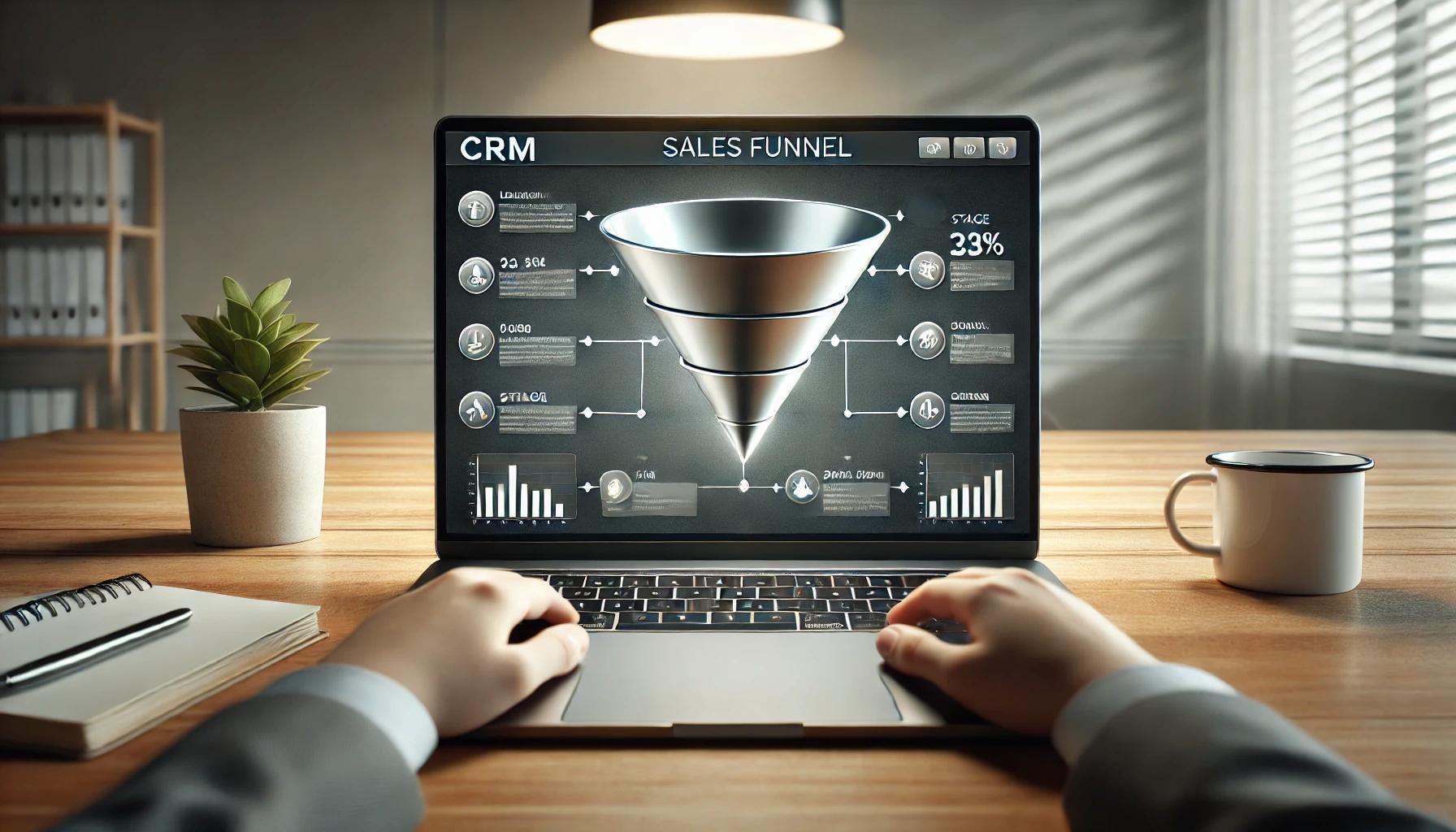↑
Sales Funnel in CRM for an Online Store: The Key to Successful Sales Management
What is a marketing funnel, and why is it so important for an online store? For a business where every website visitor can become a potential buyer, an efficient sales process is one of the key factors for success. Whether the customer completes a purchase, leaves an item in their cart, or simply views a product page—these actions can be predicted and managed through a well-configured sales funnel in the CRM system. Such a funnel allows an online store not only to visualize each stage of customer interaction but also to optimize it to boost sales. Let’s look at how this works in practice.
What is a Sales Funnel?
A sales funnel (also known as a sales pipeline) is a model representing the sequential stages of a customer’s journey from the first contact to the purchase. It is especially important for online stores that work with a high volume of potential customers. The funnel helps to visualize the purchase process, track results at each stage, and quickly identify weak points for improvement.
How Does CRM Help Manage the Sales Funnel?
A CRM system provides tools for managing the sales funnel, ensuring transparency at each stage—from the first contact to deal closure. Managers and team leads gain detailed information about all customer actions, which allows them to quickly identify problem areas, improve the sales process, and increase conversions. CRM also enables managers to analyze team performance and enhance customer interactions.

Why is Tracking the Sales Funnel Important for an Online Store?
Analyzing the sales funnel helps an online store understand exactly where it might be losing customers. Key metrics that CRM allows you to monitor include:
- Conversion Rate: The number of customers moving to the next stage, helping identify stages that need optimization.
- Time Spent at Each Stage: Identifying where the purchase process needs acceleration.
- Customer Acquisition Cost: Evaluating the return on marketing investment.
These metrics help managers assess team efficiency, understand how to tailor the sales funnel to customer needs, and improve the sales process.
Main Sales Stages
The sales stages are the key steps a customer goes through from the first contact to the purchase. For an online store, they include:
First Contact: Typically, a new website visitor or potential customer.
Interest: The customer shows interest in a product, viewing its features.
Comparison: The customer chooses among several options.
Decision: The customer decides to make a purchase.
Order Placement: The final purchase confirmation.
Post-Sales Service: Gathering feedback or providing customer support.
This structure helps managers understand where each customer is in the process and work with them more effectively.

How Does LBS Cloud CRM Simplify Working with the Sales Funnel?
LBS Cloud CRM for online stores greatly simplifies work with the sales funnel through automation and integrated tools:
- Integration with Communication Channels and Marketing Platforms: View all customer contact points.- Automated Reminders and Tasks: Ensure important actions are not missed and maintain customer connection.
- Free 15-Day Trial: Provides a chance to explore all platform features.
- Scalability: Ability to add additional modules or transition to ERP solutions as needed.
How to Build a Sales Funnel in CRM for an Online Store?
To set up an effective sales funnel in CRM, follow these steps:
1. Define All Funnel Stages: Adapt the sales stage structure to your business.
2. Set Up Automatic Action Tracking: The system will show where each customer is in the funnel.
3. Keep Stage Names Simple and Clear: Use intuitive names to help managers navigate easily, such as:
- Early Stages: "First Contact," "New Lead"
- Interest Stage: "Information Preparation", "Detailed Consultation"
- Comparison Stage: "Comparison of Options", "Detailed Review"
- Deal Closing Stage: "Decision Making", "Terms Agreement"
- Final Stage: "Purchase", "Order Placement"
- Post-Sales Service: "Feedback", "Post-Sale Support"
4. Automate Reminders and Notifications at Each Stage: Improve customer communication, for instance, with cart reminders or post-purchase feedback requests.
Conclusion
A sales funnel in CRM is the tool that helps an online store work faster and more efficiently. With LBS Cloud CRM, a business can fully control the customer journey—from first contact to deal closure, effectively monitor metrics, and automate communication. This not only saves time and resources but also significantly increases conversion. As a result, the business builds strong relationships with customers and boosts sales.
CRM LBS Cloud — a comprehensive solution for the long-term success of your online store.